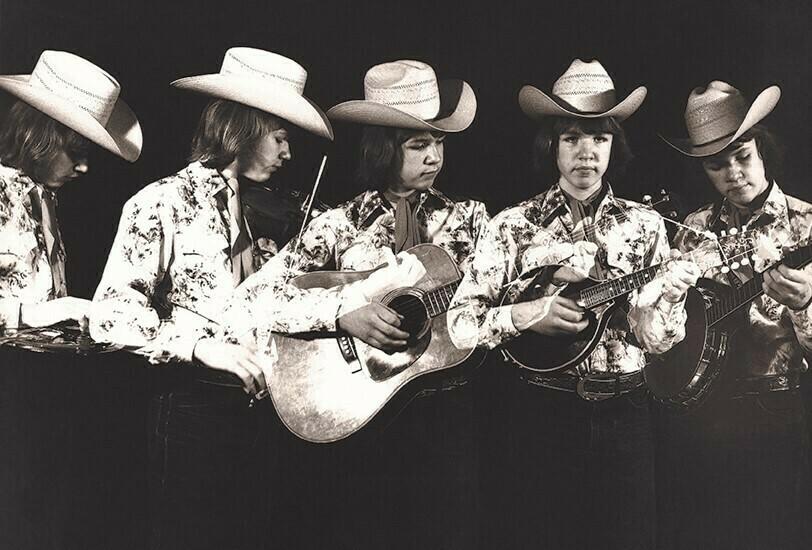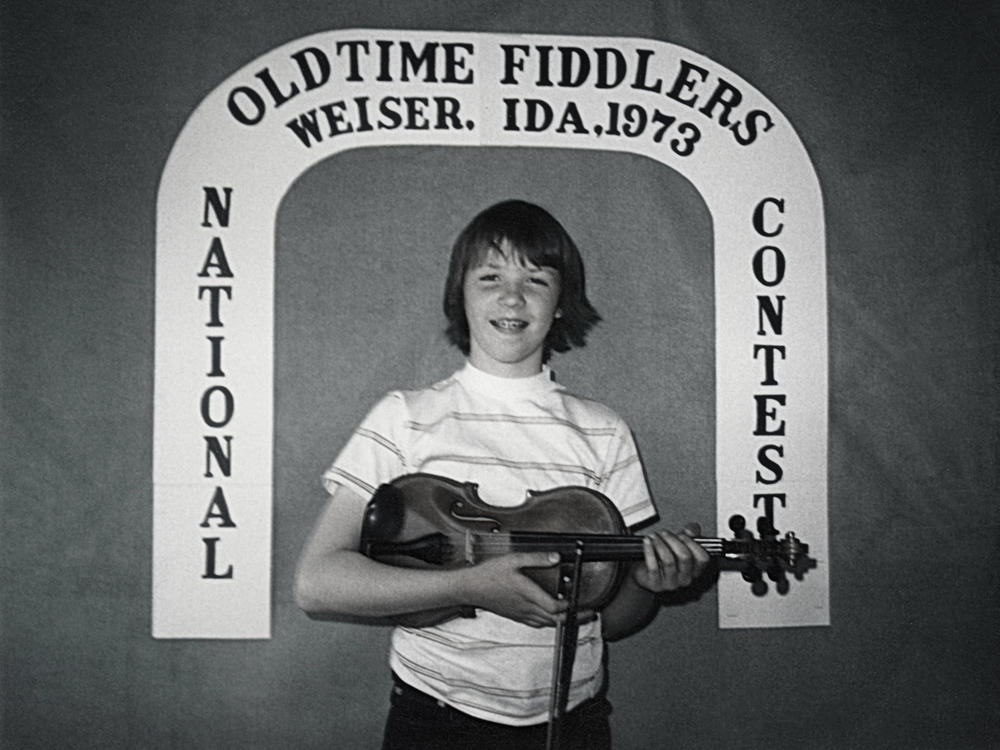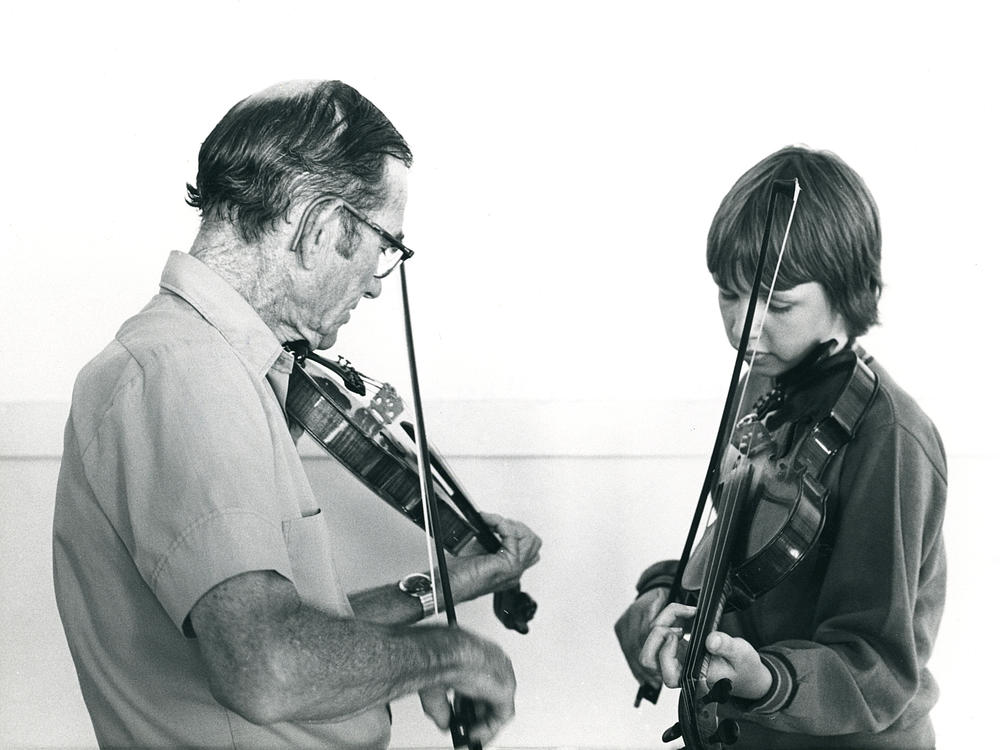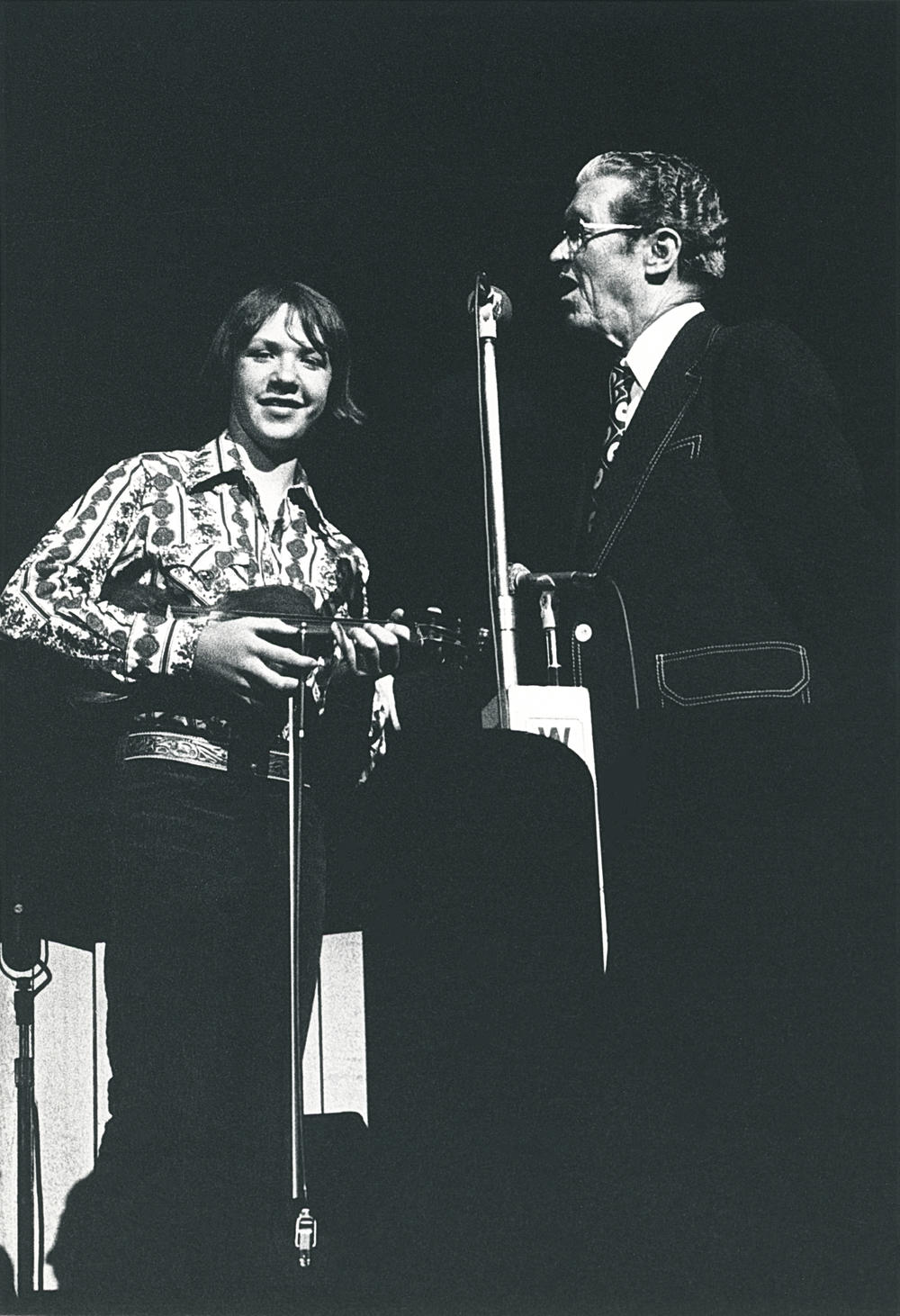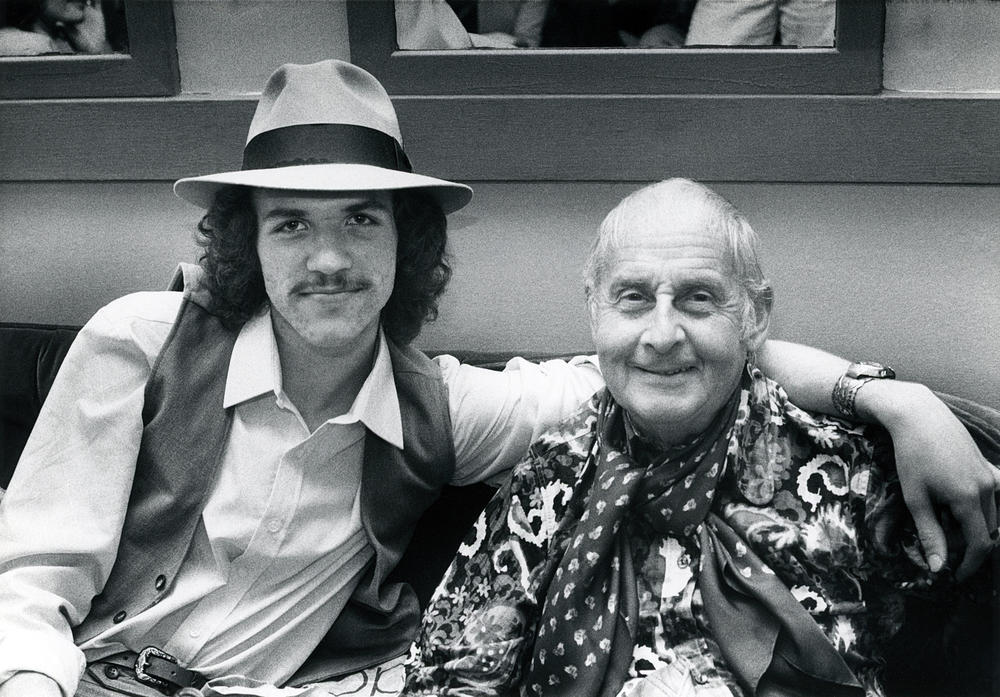Section Branding
Header Content
Prodigious fiddler Mark O'Connor celebrates 50 years of music with memoir
Primary Content
Mark O'Connor's story starts ordinarily enough. He grew up in a suburb of Seattle, where his father scraped by as a construction worker and his mother was a homemaker.
But everything changed when he finally got a fiddle for his eleventh birthday. He had begged for the instrument for three years, until his parents were finally able to purchase one for $50 from a local musician.
"I had a sense that I could communicate what I was thinking through it, through the music. I sensed the joy and the depth of it," O'Connor tells NPR's Leila Fadel. "Right away, I was attracted to the blues music on the fiddle, which ends up having an incredible history going back hundreds of years... I was really living this folk music history, even as a young child."
It was the start of a journey against the odds chronicled in O'Connor's memoir published this month, Crossing Bridges, with its accompanying photo book and CD of childhood recordings.
O'Connor, who already had a couple years of classical and flamenco guitar playing behind him, at first picked up tunes by ear, "self-taught, self-motivated to learn." He quickly caught the attention of Benny Thomasson, who helped develop the Texas style of fiddling and just happened to have retired in another part of Washington state. O'Connor would spend his weekends learning from the Texan master.
Thomasson "taught me creatively and really pushed me to come up with my own improvisations, my own renditions of old tunes," O'Connor recalls. "This is such a fantastic way to express for a child to have a unique voice already without even having to really try and search for it, because he encouraged it. And my mother did, too."
The musician, who has gone on to develop his own method of teaching fiddling based on American folk music, stressed the importance that mentors can play in the life of a child by breaking down barriers.
"It was really the creativity that enabled me to have an enjoyable life in music where I would have been just possibly another child prodigy, kind of washed up by the time they were 16 or 17 and burnt out because it was all about technical issues," he said. "With fiddling, it was half chops and half the the heart and soul of it."
Within the space of a year, O'Connor racked up wins at fiddling contests across the country, made his Nashville debut at the Grand Ole Opry and became the youngest musician to sign a contract with Rounder Records.
As a teen, O'Connor outperformed amateur and professional musicians many times his age – on the fiddle as well as on guitar and mandolin. He was such a serial winner that the National Guitar Flatpicking Championships instituted the "Mark O'Connor Rule," a five-year ban for winners, after he won that contest the second time in a row.
O'Connor eschewed traditional categories, shifting from bluegrass and country to jazz and rock, joining the David Grisman Quintet and The Dregs, as well as touring with renowned French jazz violinist Stéphane Grappelli. He collaborated with fellow musicians like Wynton Marsalis, Dolly Parton, Johnny Cash and James Taylor.
He also branched out into classical, composing symphonies and concertos played by orchestras from Baltimore, Chicago, Los Angeles and London. O'Connor says his Fiddle Concerto has been performed more than any other violin concerto composed in the last 60 years.
He's also shared the Carnegie Hall stage with leading classical violinists Isaac Stern, Itzhak Perlman, Joshua Bell and Midori. An album featuring a recording of his own "Appalachia Waltz" with cellist Yo-Yo Ma and bassist Edgar Meyer topped the Billboard classical music chart in 1996. And the fiddler composed a piece performed by competitors for the 2021 Menuhin International Violin Competition that he dedicated to the late star violinist Yehudi Menuhin.
But O'Connor's remarkable journey was filled with challenges: violent outbursts from his alcoholic father at home, severe bullying at school and jealousy on the road. These struggles also prevented him from experiencing stage fright.
"I was predisposed back home to be fearful of most things. It turned out that music allowed me to not be frightened. It was a revelation that my life could change in this way," he writes in the memoir.
"I wanted to write this book about creating an escape for troubled children through the arts, through music," he said in the interview, "because it's a way to get out of your fraught household or hard, difficult times at school."
When O'Connor first began collecting prizes, he faced taunts from his classmates for playing the fiddle that sometimes turned violent. In one incident, a group of five or six older kids beat him up and left him in a cast on his right leg for two months. A few years later, some of those kids had snuck into the building and sat in the back of the music room as he played.
"I realized how powerful music is. I didn't even have to say a word to them. I could just play my music for them," O'Connor said. "And I often wondered that if more children carried an instrument around, how much safer they could be, because I think that music is a connector in our society."
This interview was conducted by Leila Fadel, produced by Chad Campbell and edited by Olivia Hampton. To hear the broadcast version of this story, use the audio player at the top of this page.
Copyright 2023 NPR. To see more, visit https://www.npr.org.
